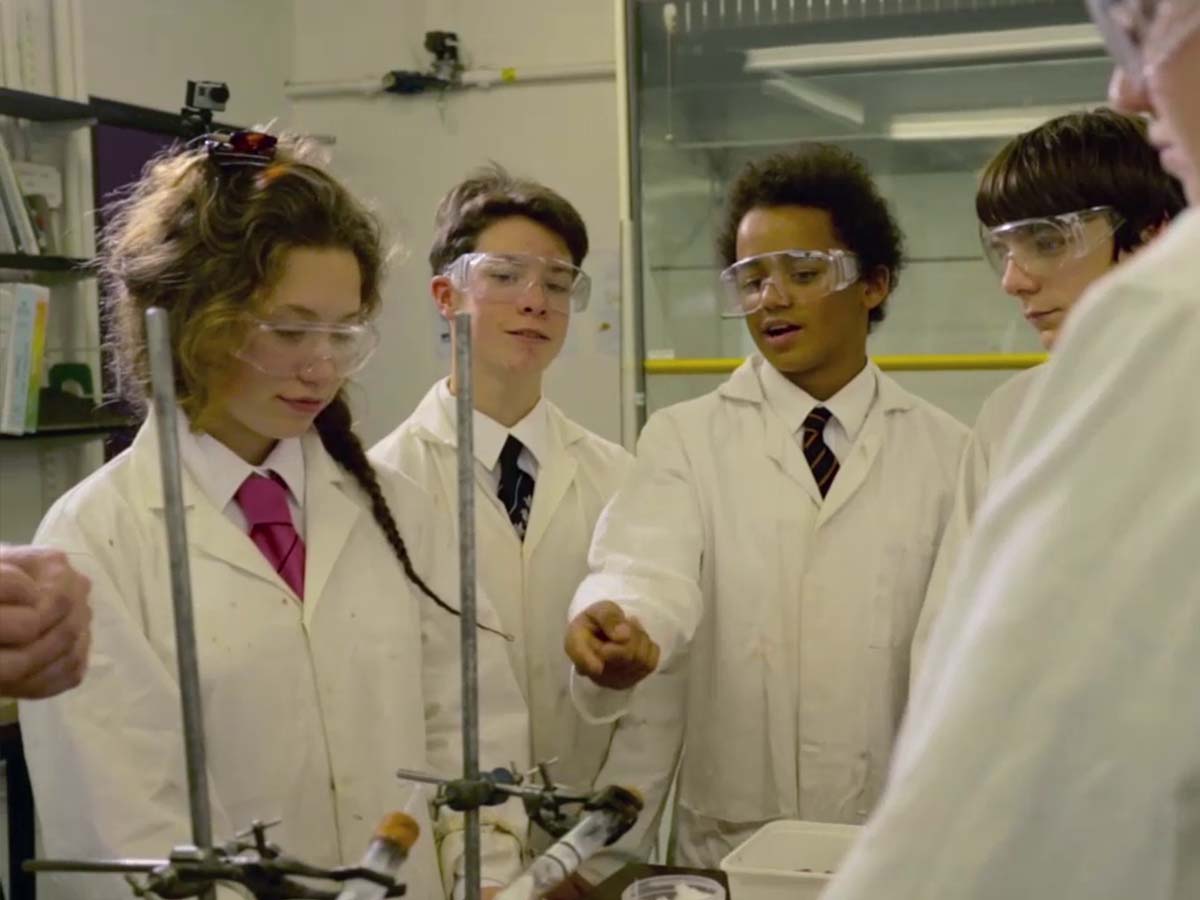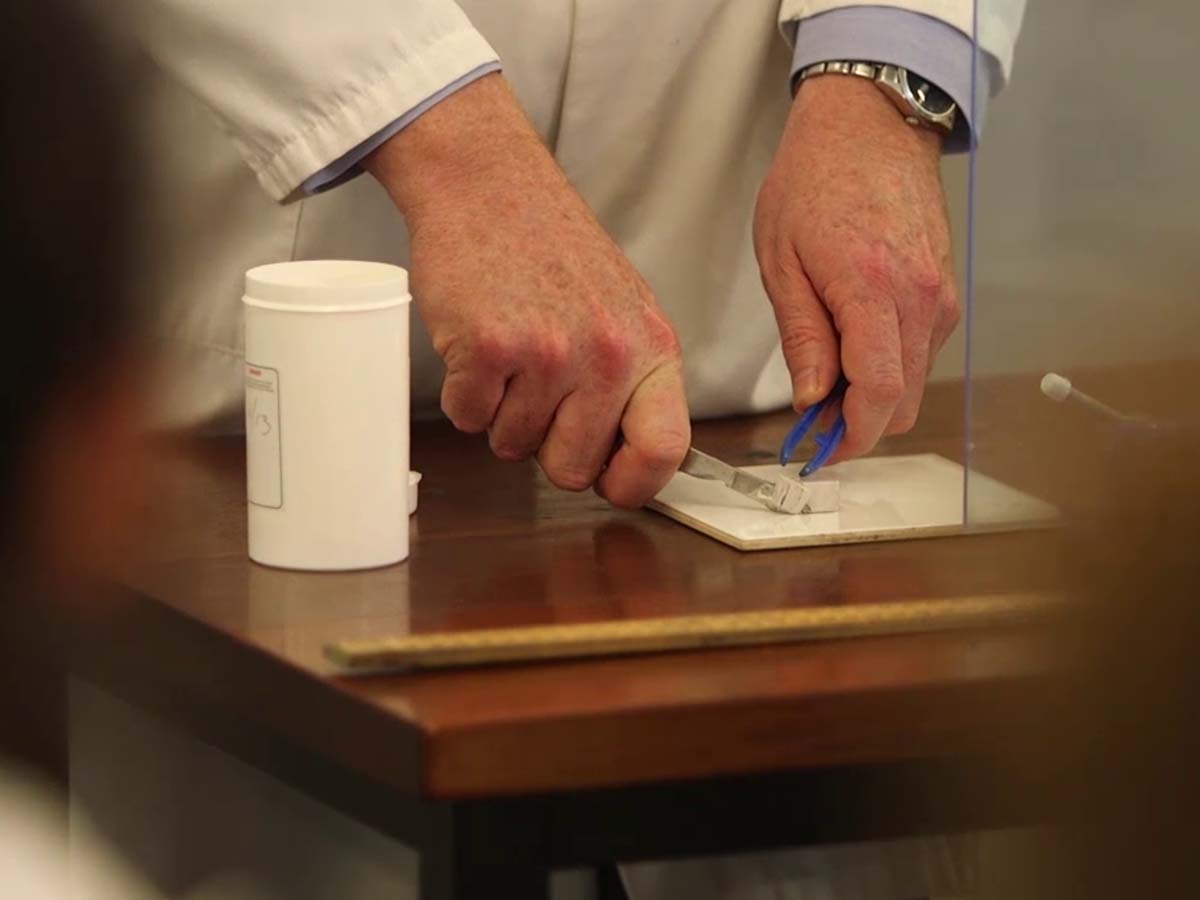What we didn't know

Picture: © Royal Society of Chemistry
Duncan McMillan explains the results of our survey of chemistry teachers across the UK, conducted with the help of specialist education research company Schoolzone, where we asked teachers what kind of support they need the most.
I’m going to make a prediction: You were taught chemistry, and you were taught by someone who understood it and enjoyed teaching it.If that isn’t true, then the fact that you stayed engaged and interested in chemistry may make you the exception, rather than the rule.
Consider what led you to become a member of the Royal Society of Chemistry. When did you realise that chemistry was a subject you enjoyed, were good at, and wanted to pursue professionally? Those motivations tend to go hand in hand.
To quote our late past president, Harry Kroto, from a tribute in Education in Chemistry: “Do science… because it gives you satisfaction, then hard work doesn’t seem like hard work.”
If a lifetime of engagement with chemistry and advocacy for the subject is the dividend, we believe a good education is the investment. And that investment depends, vitally, on teachers.
The Royal Society of Chemistry is the UK’s largest non-governmental investor in chemistry education, precisely because we believe chemistry education isn’t simply good for its own sake. It provides for a future in which chemists, lay and professional, are contributing to society, advancing scientific causes, and generating new opportunities for us in the decades to come. And in all this, teachers are key. It’s a common notion, but they really are.

Picture: © Royal Society of Chemistry
It’s also a given, especially in the UK, that education is embattled: teachers are assailed by changing policies, shifting social attitudes, and the strain of doing a difficult job for a relatively modest wage. Is this true for chemistry teachers? If so, why do they stay in the profession?
In late 2015 we realised we didn’t know enough about what secondary chemistry teachers want, what they like and dislike. Our name is one of our strongest assets, and yet it doesn’t necessarily resonate with chemistry teachers or lead them to us for help. We have to go to where teachers are. Whether they’re planning a lesson with fifteen minutes to spare, marking homework at the dinner table, or developing their own skills to move up in the profession – we can do something.
What we did
With the help of specialist education research company Schoolzone, we attempted to fill that gap in our knowledge. Schoolzone interviewed thirty teachers from across the UK in depth, and surveyed a further 160. All were teachers of chemical science at Key Stages 3, 4, or 5. We wanted to learn how teachers spent their time, what they loved about the job, and what they found hardest.
Schoolzone compiled the responses and data into three reports, one for each of the Secondary key stages, and an overall summary. They synthesised the findings with their own extensive understanding of the UK education landscape and education reforms (especially at A-Level and GCSE) to produce a series of recommendations.
What we found
Teaching is hard. First, it’s the hours, and time pressure. Teachers spend a significant proportion of their working day on administration, planning, and marking. A high workload detracts from the joys of seeing that lightbulb moment in a student’s eyes. A raft of new government policy changes, coupled with changes to the curriculum and qualification structure means that teachers feel they are working harder than ever. Teaching itself can be a source of great satisfaction, too rarely achieved.

Picture: © Royal Society of Chemistry
Teachers typically spend one to two hours a day planning and resourcing lessons and will do a quick internet search to find information or help they need. Teachers want instant access to free resources that will ‘plug the gaps’ in their own collection.
Second, it’s the subject. Chemistry is hard. It’s rife with misconceptions that can cause problems in later years. A good chemist needs decent maths skills and competence in the lab, and yet a quarter of our respondents found teaching practicals, and the new examined skills associated with them, a challenge.
Good chemistry education at any level needs a teacher confident in both subject knowledge and relevant pedagogical skills. Yet many teachers of chemistry are non-specialists, teaching outside of their subject, and their comfort zone. Developing teaching skills and working practices takes time, and non-specialists need particular help from us.
At a time of curriculum change teachers want resources and support more clearly linked to the learning goals their exam boards specify. They want to find that support faster and spend less time (or worry) working out how to use it to ensure their students get the grades they want.
Despite all this, teachers love teaching – respondents said it was the most satisfying part of their job. And yet many are promoted out of active classroom duties the moment they become truly expert.
What this means for us
In 2017 our Education team will be focusing our attention on a handful of key goals for chemistry education. At secondary level, especially Key Stages 4 and 5, we’ll prioritise the development of specialist chemistry teachers and enrichment of the curriculum they deliver.

Picture: © Royal Society of Chemistry
We’ll support these goals with our education resources and professional development, in line with Schoolzone’s findings. And we’ll start with Key Stage 4 – the new GCSEs – which, this autumn, will be unleashed upon a new cohort of 14 year-olds, and taught by an understandably nervous set of teachers – many of whom were only able to order their textbooks and schemes of work this summer.
We must make it easier for teachers to find and use the resources and services we provide. We must link those resources to exam board criteria. And, because we already provide a wealth of online materials, we will focus on curation, rather than creating new resources.
Once teachers have found our resources, we will ensure they are equipped to make the most of them, to teach effectively to their specifications, and to confidently go beyond with real-life contexts. This must come with tailored support, from professional development courses to simple guidance notes.
In providing that support, we’ve got some perceptions to change. About half the teachers who took part in the research struggled to shake off their view of the Royal Society of Chemistry as a highbrow society for chemistry academics rather than teachers. Encouragingly, chemistry specialist teachers associated our brand with statements such as ‘accessible’, ‘trustworthy’ and ‘has integrity’.
We’ve got some very strong foundations to build on: a huge resource collection in Learn Chemistry; an expert nationwide network of education coordinators; a dedicated resources team; a supportive member community; and a brand that is a byword for excellence (even if it hasn’t yet reached enough teachers).
We’ll need all of that if we can provide the help our teachers tell us they need.